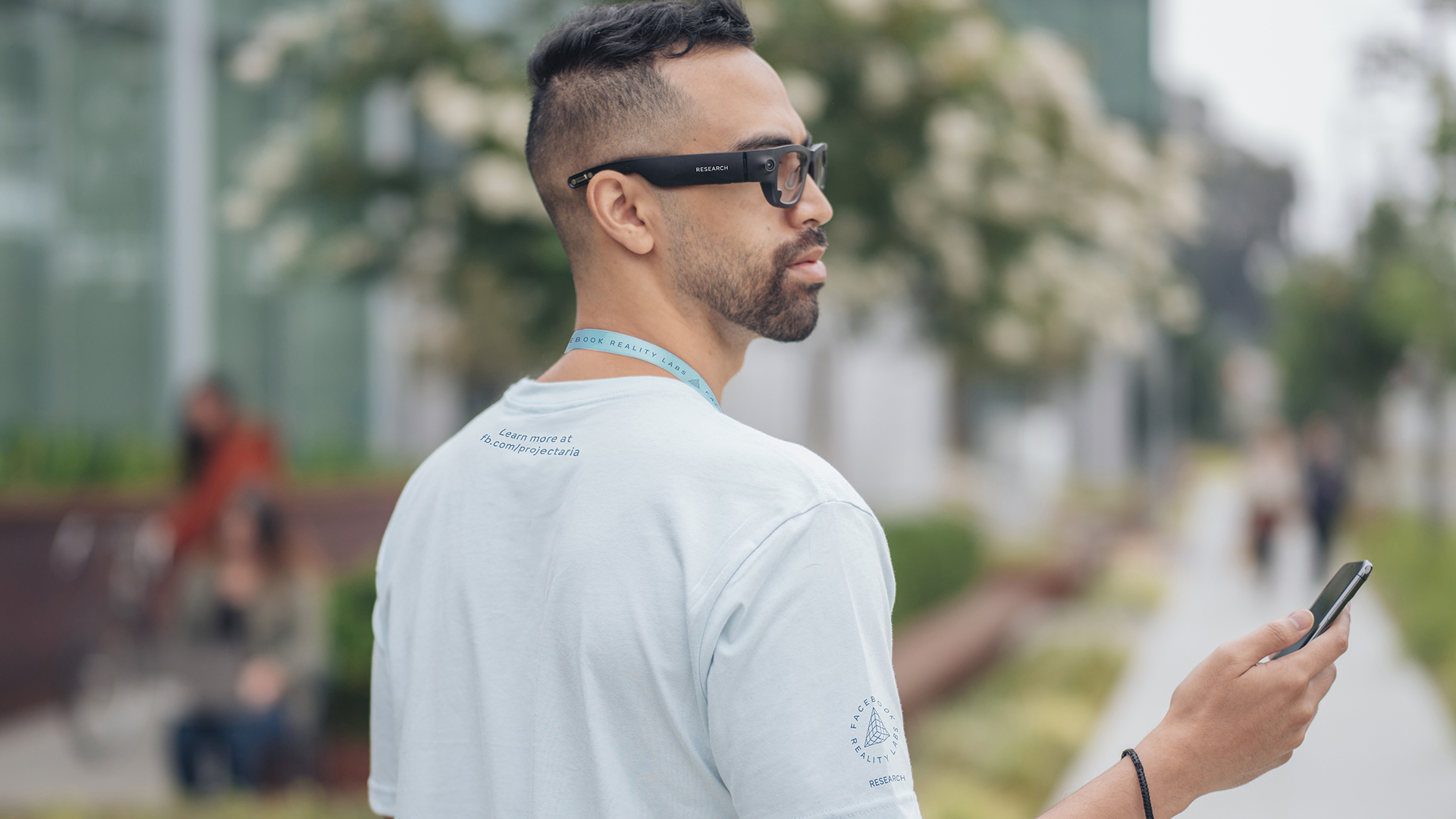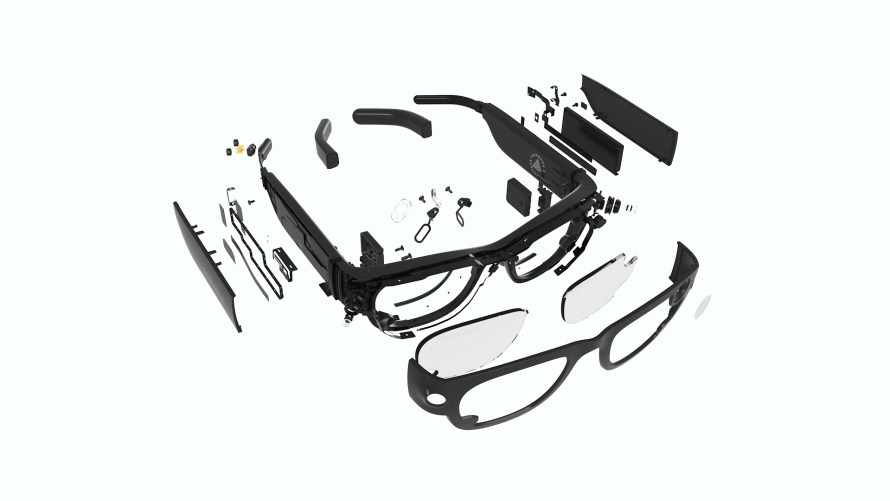At Facebook Reality Labs, we are building Augmented Reality (AR) glasses that will enhance your surroundings with a 3D layer of useful, meaningful and contextually relevant information. And unlike the devices of today that force you to choose between your screen and the world around you, these glasses will blend into the flow of everyday life. Imagine a pair of glasses that let you see better in low light or hear better in a noisy room. If you’re walking in a new city, you could get heads-up directions; if you don’t understand a local language, the glasses could translate the world around you.
We believe this is the next step in the evolution of computing, but in order to build this device, we have to do our homework first. We have to not only develop the technology needed to make these glasses possible, but also determine best practices that respect people’s privacy as well as the privacy of people in the glasses’ line of sight.
Today, we announced a research initiative called Project Aria. We built a research device which will be worn like a pair of glasses and will help us understand how to build the software and hardware necessary for AR glasses. The device will use sensors to capture video and audio from the wearer’s point of view, as well as their eye movement and location data. This is a research device; it’s not a prototype, and it’s not for sale. To start, it will be worn by a group of Facebook employees and contractors – about 100 participants in the San Francisco Bay Area and Seattle – as they go about their day.
While Project Aria is an exciting step toward our vision for AR glasses, it also raises important questions around privacy. We built this research device with privacy in mind and we put provisions in place around where and how we’ll collect data, as well as how it will be processed, used and stored. Ultimately, Project Aria is going to help us develop the safeguards, policies and even social norms necessary to govern the use of AR glasses and other future wearable devices.
Where Will This Research Take Place?
In the future, people will wear AR glasses as they go about their day – at home with their families, at work with their colleagues or at dinner with their friends. This is why Project Aria will need to capture a diverse set of data. But not all spaces are the same, so we’re taking precautions around how and where data will be captured.
All Project Aria participants will undergo training around appropriate use. Project Aria participants will be instructed to record in Facebook offices (once they reopen), in their private homes (where all household members must first consent to the device being used) or in public spaces. Before participants record in privately-owned venues that are open to the public, like stores or restaurants, they must seek consent from the owners. Participants will be instructed not to record in sensitive areas like restrooms, prayer rooms, locker rooms or during sensitive meetings and other private situations.
How Will People Know the Research is Happening?
We want people who encounter a Project Aria participant in public to understand that they’re conducting research. So to start, participants will wear distinct clothing that identifies them as a member of this research project, including a lanyard with a badge directing anyone who is interested to a website with more information. When the device is collecting audio and video data, it’ll shine a white light to let people know it’s on. If a participant is in a location or situation where they determine it is not appropriate to record, they can stop audio and video recording on the device with the push of a button. Participants will also be able to delete recorded data segments by selecting the timestamp on a companion app installed on their smartphones.
We’ll continue to evaluate our policies and the indicators we provide to make sure we’re respecting people’s privacy and being transparent about what Project Aria is and what the research device does.
How Are We Protecting the Data We Collect?
We’ll take precautions with the data these research devices collect, including how we process, store, use and secure it, and who has access to the data at all. We’ll use encryption to store data on the devices and a secure ingestion system to upload data from the devices to a separate, designated storage space, accessible only to researchers with approved access.
When data is uploaded from a research device, it will be kept under quarantine for three days. While the data cannot be used for research during this time, participants can still delete recorded segments, without viewing the raw data. Any data gathered in a public place will be automatically scrubbed by our systems to blur faces and license plates and will not be used to inform the ads people see across Facebook’s apps.
How Are We Developing a Framework for Responsible Use?
Just as much of the technology needed to build AR glasses doesn’t exist yet, neither do many of the norms for their responsible development and use. So, we’ve worked with in-house and external experts in privacy, civil rights and tech policy to inform things like: how we built our data pipeline for the project, how we’re protecting data collected in public, how we train participants and how we ensure they are identifiable in public.
We are also publishing our Principles for Responsible Innovation that guide our work across Facebook Reality Labs and ensure we are conducting research and developing products with people’s privacy, safety and security at the forefront.
These principles – and this project – are just a starting point. We will continue to listen, learn and evolve as we get feedback about what’s working and what we can do better.

